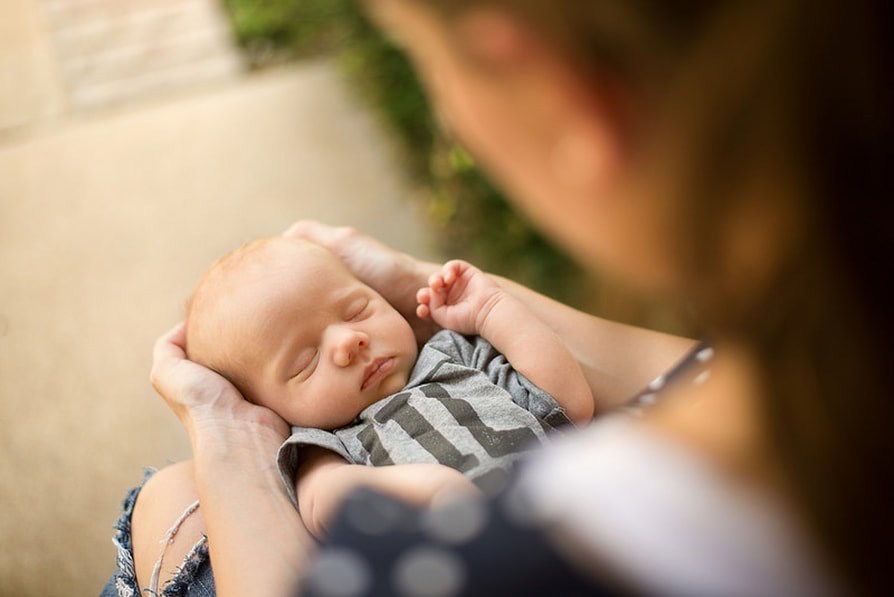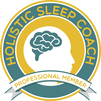|
As a parent, experiencing what feels like endless unsettledness after your baby wakes up from their sleep in the night or takes short unpredictable naps in the day can be demoralising. I know all too well about those feelings of worry and not knowing how your baby’s sleep (and your own sleep) will improve. Once I got to grips with the different developmental stages and how they affect sleep, it was reassuring and helped me understand (and accept) the progress and changes my baby was going through. Developmental milestones are personal successes and indicators that your child is learning everyday as he or she grows. Often, these milestones can effect your child’s sleep. As a parent, knowing how normal these developments are will help you understand how you can cope with some sleepless nights and disrupted naps.
I could write a book about milestones in general but I have picked key ages and milestones within them that relate to sleep specifically. Let’s break down each stage in turn. Newborn Recognising the stage: This is the stage where, as a mother, you are your baby’s complete world. They know nothing else apart from you. When you pick them up, they feel soothed and stop crying. They recognise your voice but can’t yet distinguish between night and day. Sleeping and feeding are the main activities your baby will do for the first month. At this stage the do not have any sleep hormones (melatonin) but usually around 6 weeks there is a change to body temperature regulation and baby’s own melatonin is fully established. They only have 2 stages of sleep, deep and active, and they spend about half their sleep in each stage, they have very small tummies too and need to wake to feed regularly you can expect 2-6 wakings in the night for feeds. Naps are varied and unpredictable with no definite day-night pattern but usually sleep is in blocks of 3-4 hours as they approach the 6-12 week mark. What to do: This is a high dependency, very intense developmental stage. You have a close connection with your baby, which is important, think about how much contact they had with you in the womb – 100%! so it is likley they want to be held close and will need to take some time to adjust to the world. There are some things you can do to help at this stage. Start by helping your baby regulate their body clock by exposing them to 12 hours of daylight and 12 hours of darkness every day. This will be the instigator for helping them distinguish between night and day. Use sensory cues to help them get to sleep, such as patting or shushing. To help with the balance of overtiredness which is a big culprit to a fussy baby in the early evening, offer the opportunity for a nap every 45-60 mins through-out the day. 3 Months Recognising the stage: When your baby reaches the third month mark, their interactions with others and things around them increases a lot. They will be more interested in toys and crave the attention of others. All this interaction is great for their development but can also make them overtired. In this stage, they will be more aware of their surroundings and people. You will notice your baby can manage being awake for longer between naps and they might not need changing in the night. What to do: At this stage, you will be working on noticing when your child is soon to become overtired. If your child does not give you sleepy cues and “signs” of when they are becoming tired, are hard to gauge read my blog on “How to Tell When Your Child is Tired” This is also the right time to start a proper bedtime routine, better sleep outcomes are linked to the more nights per week a bedtime routine is implemented. A bedtime routine at this age might look like:
6 Months Recognising the stage: This is when your baby becomes much more vocal! Your babbling baby will also be starting to sit and eat solids and possibly learn to crawl. They might also be getting their first teeth. And there body clock is fully established by 6 months, they have fully moved from the newborn sleep pattern to sleep maturity. To understand this sleep leap in more detail see this blog "The Truth About the 4 Month Sleep Regression" At this milestone, your baby’s learning gets a little boost. Their brains are working hard to learn so many new things that it often manifests in more frequent night waking. At 6 months, you are likely to see your baby schedule their naps into 3 separate times. Mid-morning, lunchtime and mid-afternoon, with the largest amount of sleep occurring during the night. What to do: The most important thing to do is to not worry about the changes you will see. It’s fine if your baby is still feeding in the night. Keep in mind that less than 20% of 6-month olds sleep 12 hours a night. So, don’t feel any pressure for your baby to achieve a full lengthy sleep during the night. If you have not implemented a short consistent bedtime routine – do this know! It changes slightly from when your baby was 3 months, with the introduction of a bedtime story as the last step, and you will likley be able to leave the room once they are settled into their cot, you may want to consider offering the bedtime feed as step one of the bedtime routine to separate the association of feeding with sleeping. 9 Months Recognising the stage: At 9 months, your baby will be moving and grooving. You will see wriggling, shuffling, sliding and crawling. They may even start pulling themselves up to stand! A big part of this stage is separation anxiety. Your baby will now know that you exist, even when they can’t see you. This has big implications for their sleep patterns as your crafty little one starts to wake just to check that you are still there. With their new skills, babies of this age often pull themselves up to standing in their cot, when you lay them down. Most babies will do best on 2 naps in the day, some babies will be grumpy as they have dropped that third nap and trying to fit it in becomes problematic. What to do: For general tips on separation anxiety, you can read my blog post on “Eight Tips for Easing Separation Anxiety” If your baby is pulling themselves up to their feet after you have placed them down, you can lie down on the floor next to their cot. Maybe even pretend to be asleep! They may be small, but babies still prefer to look at you at eye level. It helps with connection and understanding. So, laying down might just entice them to lie down and be closer to you. If you have a grumpy baby in the afternoon due to them dropping their mid-afternoon nap, you can try an earlier bedtime to see if that helps. 12 Months Recognising the stage: This developmental stage is a huge step in your baby’s progress. Their social behaviour becomes more developed and you will see them wanting to be right in the centre, where they can see, hear and eat with familiar people. They might begin walking and can understand simple instructions. It’s a very exciting time where they are becoming more independent. All this interaction and responsiveness can make for a disrupted sleep pattern. What to do: It’s time to get back to basics! You might want to revisit your sleep routine and general activities. Is it peaceful, nurturing and does it meet the needs of your child? Are they getting enough time outdoors? Do they do enough exercise? Is their diet suitable? Plenty of cuddles are needed at this busy, interactive stage. 15 Months Recognising the stage: This developmental stage carries on from the last, with more progress being made in walking, speaking and communicating their needs by pointing or shouting. You might find that your child can say a handful of words in the correct context. Social behaviours and emotions are becoming more refined as your child shows affection to familiar people and seeks reassurance. What to do: It’s absolutely fine if your 15-month-old is still waking for a night feed. Again, like in the last stage, ensure your child has lots of exercise, a varied diet and receives affection. If your child is struggling to sleep for their lunchtime nap, you can try either shortening or completely eliminating the morning nap, so moving to one nap in the middle of the day. 18 Months Recognising the stage: Your 18-month-old will be starting to lead a busy life! They will be dancing, playing independently, and interested in books and climbing. It’s common to see sleep problems at this stage because there’s so much going on. Your child will be wanting to express themselves, but perhaps feeling frustrated at their inability to do it properly. They’re becoming more independent, but they’re still a little afraid of this independence which results in a new wave of separation anxiety. It’s not uncommon for children of this age to experience a little bout of clinginess. What to do: Continue letting your child nap and don’t worry if they are still waking in the night, it’s still common. Let your child explore their new-found independence and give them limited choices throughout the day. If they have the opportunity to choose things, it might make them less fussy about food, toileting and sleep. Keep consistent and supportive. Patience is key at this milestone. 2 Years Recognising the stage: At this stage, your child will really begin to show you their character. Their speech is developing, they may be showing signs of being ready for potty training and they can follow some instructions. On the more difficult side, they may be following you around constantly, demanding your attention forcefully and feeling resentful of attention shown to other children. This stage involves a huge surge in your child’s learning – speech, vocabulary, emotions and physical progress all come into play. This increased brain activity often results in disturbed sleep. What to do: You might find that your child is waking up more frequently in the night due to increased brain activity. If you’re feeling tempted to drop the lunchtime nap because bedtime has become more difficult – don’t do it! Try to stick with the nap, even if it makes your child’s bedtime later – say 8pm or cap the nap to 60 mins but hold onto it until around 2.5 years or you might end up with super early mornings! Introduce some rough housing and playtime before the bedtime routine, games which involve some physical exertion and giggles with the parent in the less dominant role are super great for minimising bedtime battles at this age. Adapting to your baby’s progress and changes will never be easy. Having knowledge about their sleep and milestones at key stages will help you understand and support your baby more. If you’re struggling and need to chat feel free to book an assessment with me. Comments are closed.
|
Categories
All
|
Site Links |
Copyright © - Nadia Edwards 2024, 3 Northbank Road, Cairneyhill, Dunfermline, Fife, KY128RN | Sitemap




